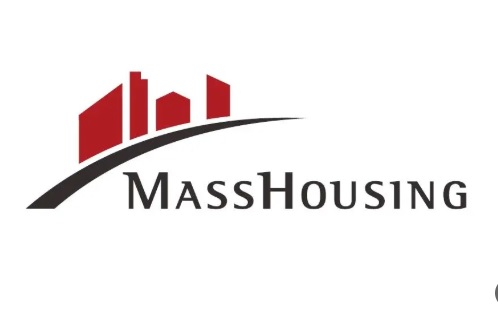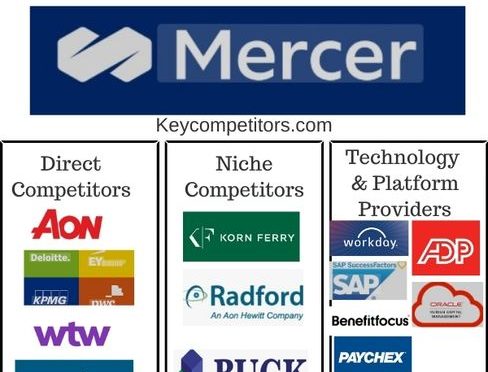Introduction
Massachusetts faces a significant challenge when it comes to affordable housing. With rising housing costs and increasing demand, organizations like MassHousing play a pivotal role in addressing this issue. However, they do not operate in isolation. The affordable housing landscape in Massachusetts is shaped by a diverse ecosystem of players, including state agencies, federal programs, private developers, and non-profit organizations. This article explores MassHousing competitors in detail, highlighting their roles, strengths, weaknesses, and contributions to affordable housing development and financing.
Understanding the landscape of MassHousing competitors is crucial for developers, municipalities, and residents who want to navigate the complex world of affordable housing in the Commonwealth. By analyzing these competitors and their approaches, stakeholders can make informed decisions and maximize the impact of their efforts.
The Affordable Housing Challenge in Massachusetts
Affordable housing has become one of the most pressing issues in Massachusetts. High housing costs are pushing low- and moderate-income residents out of the market, making it difficult for families to find stable and affordable homes.
MassHousing, the Massachusetts Housing Finance Agency, has been at the forefront of tackling this challenge. Through innovative financing solutions, rental subsidy programs, and homeownership initiatives, MassHousing has been instrumental in creating and preserving affordable housing opportunities. However, the agency operates within a larger network of entities that share similar goals.
This broader ecosystem includes MassHousing competitors, such as the Massachusetts Department of Housing and Community Development (DHCD), federal programs like HUD, private developers, and non-profit organizations. Each entity brings unique tools, approaches, and resources to the table, making collaboration and competition essential for success.
Key MassHousing Competitors and Their Roles
To better understand the affordable housing landscape, let’s explore some of the key MassHousing competitors and their contributions:
DHCD (Massachusetts Department of Housing and Community Development)
The DHCD is a critical player in the affordable housing ecosystem. Unlike MassHousing, which primarily focuses on financing, DHCD is responsible for policy-making, funding allocation, and oversight of housing programs.
- Focus: Policy, funding, and community development oversight
- Key Tools/Programs: State housing subsidy programs, tax credits, and planning grants
- Target Audience: Developers, municipalities, housing authorities, and residents
- Strengths: Policy-setting authority and control over state funding
- Weaknesses: Administrative overhead and vulnerability to political shifts
While MassHousing and DHCD often collaborate, their distinct roles make them complementary rather than direct competitors.
Other State Housing Finance Agencies (MHFA)
State Housing Finance Agencies (HFAs) from other states, while not operating directly in Massachusetts, represent alternative models and potential best practices.
- Focus: Financing affordable housing in their respective states
- Key Tools/Programs: Bond issuance, tax credits, and federal program administration
- Target Audience: Developers and municipalities in their state
- Strengths: Tailored approaches to state-specific needs
- Weaknesses: No direct influence in Massachusetts
Private Developers
Private developers play a significant role in housing production, including affordable housing. Their involvement often depends on incentives like tax credits or subsidies.
- Focus: Market-rate and affordable housing development
- Key Tools/Programs: Equity investment, debt financing, and market expertise
- Target Audience: Investors and housing residents
- Strengths: Market-driven efficiency and access to private capital
- Weaknesses: Profit-driven approach, often prioritizing market-rate housing
Non-Profit Developers
Non-profit developers are mission-driven organizations dedicated to creating affordable housing. They often partner with MassHousing and leverage public and private funding.
- Focus: Affordable housing development with a mission-driven approach
- Key Tools/Programs: Grants, donations, and low-cost financing
- Target Audience: Low- and moderate-income residents
- Strengths: Commitment to affordability and access to grants
- Weaknesses: Limited funding and scalability challenges
Federal Programs (HUD)
Federal programs, particularly those administered by the U.S. Department of Housing and Urban Development (HUD), provide essential funding and policy frameworks for affordable housing.
- Focus: National affordable housing policy and funding
- Key Tools/Programs: Housing Choice Vouchers, HOME Program, and Low-Income Housing Tax Credits (LIHTC)
- Target Audience: Low- and moderate-income individuals and families nationwide
- Strengths: Largest source of affordable housing funding
- Weaknesses: Complex regulations and federal budget constraints
Strengths and Weaknesses of MassHousing Competitors
Each of these MassHousing competitors has unique strengths and weaknesses that shape their impact on the affordable housing landscape:
MassHousing
- Strengths:
- Dedicated focus on Massachusetts
- Diverse financing tools
- Proven expertise in affordable housing
- Weaknesses:
- Limited funding capacity compared to federal programs
- Bureaucratic processes
DHCD
- Strengths:
- Policy-making authority
- Control over state funding and tax credits
- Weaknesses:
- Administrative inefficiencies
- Susceptibility to political changes
Private Developers
- Strengths:
- Market-driven efficiency
- Access to private capital
- Weaknesses:
- Profit-driven motives
- Limited focus on deep affordability
Non-Profit Developers
- Strengths:
- Mission-driven commitment to affordability
- Ability to access grants and donations
- Weaknesses:
- Funding challenges
- Difficulty scaling projects
Federal Programs (HUD)
- Strengths:
- Largest source of funding for affordable housing
- Sets national standards
- Weaknesses:
- Complex to navigate
- Budget constraints
Collaboration and Competition Among MassHousing Competitors
The affordable housing sector is not a zero-sum game. While there is competition among entities, collaboration is often necessary to achieve shared goals. For instance:
- MassHousing and DHCD: These two entities frequently work together, with DHCD setting policies and allocating funds that MassHousing uses for financing programs.
- MassHousing and Non-Profit Developers: MassHousing often partners with non-profit developers, providing financing for mission-driven projects.
- MassHousing and Private Developers: Incentives like tax credits encourage private developers to include affordable units in their projects.
Consumer and Developer Preferences
Understanding the preferences of key stakeholders is essential for improving affordable housing initiatives:
- Developers: They value streamlined financing processes, favorable loan terms, and a supportive regulatory environment.
- Municipalities: Local governments prioritize projects that align with community development goals and address specific housing needs.
- Residents: Affordability, quality housing, and access to supportive services are top priorities for low- and moderate-income residents.
Future Trends and Investments
The future of affordable housing in Massachusetts will be shaped by investments and strategic plans from MassHousing and its competitors:
- MassHousing: Focus on innovative financing solutions, preserving existing affordable housing, and addressing climate resilience.
- DHCD: Implementation of new state-level initiatives and streamlining funding processes.
- Private Developers: Exploration of mixed-income developments and opportunities created by housing shortages.
- Non-Profit Developers: Expansion of capacity and advocacy for increased funding.
- Federal Programs (HUD): New regulations and funding priorities under changing administrations.
Conclusion
MassHousing operates in a dynamic ecosystem of entities working to address the affordable housing crisis in Massachusetts. While not in a traditional competitive market, its influence is shaped by the actions of MassHousing competitors, including state agencies, federal programs, private developers, and non-profit organizations.
Collaboration among these players is essential to tackle the multifaceted challenges of affordable housing. By understanding the roles, strengths, and weaknesses of MassHousing competitors, stakeholders can better navigate the landscape and contribute to creating a more affordable and equitable housing market in Massachusetts.
In this complex environment, MassHousing remains a critical player, but its success depends on strategic partnerships and the collective efforts of all entities involved in the affordable housing ecosystem.
Frequently Asked Questions (FAQ) About MassHousing Competitors
Affordable housing in Massachusetts is shaped by a variety of organizations, each playing a crucial role in addressing the growing housing needs of low- and moderate-income residents. While MassHousing is a key player, several competitors and partners contribute to the affordable housing ecosystem. These MassHousing competitors include state agencies, federal programs, private developers, and non-profit organizations. Below are the top 10 frequently asked questions about MassHousing competitors, designed to help you better understand their roles, strengths, and contributions.
Who Are MassHousing’s Main Competitors?
MassHousing’s main competitors include:
- The Massachusetts Department of Housing and Community Development (DHCD).
- Federal programs such as the U.S. Department of Housing and Urban Development (HUD).
- Private developers (for-profit entities).
- Non-profit developers focused on mission-driven affordable housing.
- Housing Finance Agencies (HFAs) in other states, which offer alternative models and best practices.
How Does DHCD Compete with MassHousing?
The Massachusetts Department of Housing and Community Development (DHCD) is not a direct competitor but rather a complementary partner. DHCD focuses on policy-making, funding allocation, and oversight, while MassHousing specializes in financing affordable housing projects. Their roles often overlap, but they collaborate on many initiatives to address the state’s housing needs.
What Role Do Federal Programs Play in Affordable Housing?
Federal programs, particularly those administered by HUD, provide significant funding and policy frameworks for affordable housing. Programs like Housing Choice Vouchers, the HOME Investment Partnerships Program, and Low-Income Housing Tax Credits (LIHTC) are essential tools that MassHousing and other entities use to support affordable housing development.
How Are Private Developers Competitors to MassHousing?
Private developers are competitors in the sense that they play a significant role in housing production, often focusing on market-rate housing. However, they can also contribute to affordable housing when incentivized through tax credits, subsidies, or partnerships with organizations like MassHousing. Private developers are typically profit-driven, whereas MassHousing prioritizes long-term affordability.
What Is the Difference Between Non-Profit Developers and MassHousing?
Non-profit developers are mission-driven organizations that focus on creating and preserving affordable housing. Unlike MassHousing, which provides financing, non-profits rely on grants, donations, and low-cost loans to fund their projects. They often collaborate with MassHousing to access financing and technical assistance.
Do Housing Finance Agencies (HFAs) in Other States Compete with MassHousing?
While Housing Finance Agencies (HFAs) in other states do not directly compete with MassHousing within Massachusetts, they represent alternative approaches and innovative models. Developers and policymakers in Massachusetts can learn from these agencies to improve local affordable housing strategies.
What Are the Strengths of MassHousing Competitors?
Each competitor brings unique strengths to the table:
- DHCD: Policy-making authority and control over state funding.
- HUD: Largest source of funding for affordable housing nationally.
- Private Developers: Market-driven efficiency and access to private capital.
- Non-Profit Developers: Mission-driven commitment to affordability.
- Other HFAs: Tailored approaches to state-specific needs and innovative financing models.
How Do MassHousing and Its Competitors Collaborate?
Collaboration is common in the affordable housing ecosystem. For example:
- MassHousing and DHCD work together to allocate funding and implement housing policies.
- MassHousing partners with non-profit developers to finance mission-driven projects.
- MassHousing collaborates with private developers by offering incentives like tax credits to include affordable units in their projects.
What Are the Weaknesses of MassHousing Competitors?
While MassHousing competitors bring value to the housing landscape, they also face limitations:
- DHCD: Administrative inefficiencies and susceptibility to political changes.
- HUD: Complex regulations and federal budget constraints.
- Private Developers: Profit-driven motives may limit focus on deep affordability.
- Non-Profit Developers: Funding challenges and scalability issues.
- Other HFAs: Limited influence outside their respective states.
Why Is It Important to Understand MassHousing Competitors?
Understanding MassHousing competitors is essential for developers, municipalities, and residents navigating the affordable housing landscape. By knowing the strengths, weaknesses, and roles of these entities, stakeholders can make informed decisions, leverage resources effectively, and foster collaboration to address housing challenges in Massachusetts.


